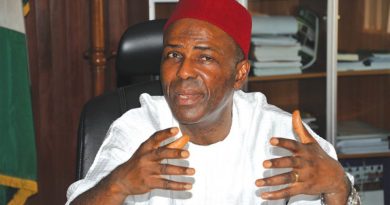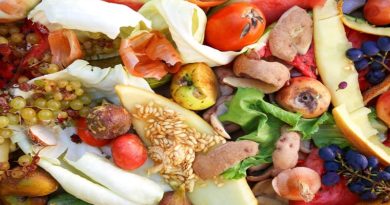UNDP/ECN initiative boost Ofada rice production in Ogun
Efforts by the United Nations Development Programme (UNDP) Nigeria Country Office and the Energy Commission of Nigeria (ECN) to enhance rural energy access for productive uses through the introduction of innovative off-grid solar powered commercial agro-processing particularly in rice production is already yielding results.
The duo in February began the installation of off-grid solar-power and other equipment including pre-cleaner, per-boiler, dryer, miller and de-stoner to enhance the production of Ofada rice in Moloko Asipa, an agrarian community in Obafemi Owode Local Government Area of Ogun State.
The project, completed in April this year has increased the production capacity of the mill which was hitherto run on diesel, save cost and creates employment opportunity for youth in the community. Besides, a borehole was also constructed that supplies water to the community.
Chief Executive Officer of Ofada Rice Agro-processing Mills Limited, operator of the facility, Mr. Ayodele Adenekan, told ecogreennews during a visit to the facility that since the solar plant was completed in April, all the equipment have been working on 24 hours solar power.
Importantly, he disclosed that before the new initiative, they spent on average of N18,000 to N20,000 every month on diesel depending on the volume of rice to be processed but all of that had stopped since the project was completed.
“Before now, we run on diesel and it cost between N18, 000 to N20,000 every month depending on the volume of rice, but thanks be to God, there is nothing like that again, we now run on solar.
“It has greatly increased our production, I produce more for less,” he added.
Adenekan said the gesture has also led to job creation for youth in the community who have been engaged in the Ofada rice processing. He added that the equipment installed doubled the capacity of what they have in the mill before.
He disclosed the equipment installed had also help to enhance the quality of Ofada rice processed at the mill. He commended the UNDP/ECN for bringing such development initiative to the community.
Asked on the next line of action after the UNDP/ECN gesture, Adenekan said he is now looking at how to export Ofada rice because the huge demand by Nigerians in diasporas who cherish the delicacies.
Corroborating him, Mrs. Janet Adegboye who processes her rice harvest in the mill, commended the initiators of the project, saying processing her rice has become easy with the completion of the project. “We are very happy with what UNDP/ECN has done for us,” she stressed.
Baale-General of Moloko Asipa, Mr. Nureni Kolawole Adesina, commended UNDP/ECN for the equipment installed that has made rice processing faster and cheaper. He said the facility has also provided employment opportunity for youth in the community who have been engaged in the mill.
The Baale-General specifically thanked UNDP/ECN for the borehole provided for the community which has ease water challenge in the community. “Water has been scarce in the community before now, we used to fetch water to the palace, but this has stopped. It has been a blessing to the community and we are happy about it.”
The Nigerian rice sector has experienced some remarkable developments and growth in recent years. Both rice production and consumption in Nigeria have vastly increased. With rice now being a structural component of the Nigerian diet and rice imports making up an important share of Nigerian agricultural imports, there is considerable political interest in increasing the consumption of local rice.
One of the major constraints that has affected the development of Nigerian rice sector is the inability of the local rice to match the quality of imports. While majority of the mills (85%) are powered with fuel engines while 10% are using electric engines and four mills (5%) have invested in both types, operators recognize that it is cheaper to run electric-powered mills than fuel-powered equipment but the erratic supply of electricity jeopardizes the workshop operations.
In Nigeria, many small and isolated rural communities, where greater percentage of the foods (including rice) consumed in the country are being produced are off the national grid, with limited or no access to commercial energy sources. The rural communities (mainly women and children) typically depend on manual labour with limited access to diesel and petrol engines/mill for crop processing. The scarcity and high cost of the fuels forced them to rely on manual processing, or travel long distances to use a mill.
In order to address this situation and enhance rural energy access for productive uses, UNDP in collaboration with Energy Commission of Nigeria introduced innovative off-grid solar powered commercial agro-processing systems in Ebonyi, Benue and Nasarawa States focusing on rice in the first two States and melon in Nasarawa.
The overall objective of the project was to promote innovative application of off-grid solar PV beyond households to stand-alone productive use appliances for agro-processing in agricultural value chain and water supply/sanitation for micro, small, medium enterprises to: stimulate local economic activities; enhance productivity and profitability; reduce greenhouse gas (GHG) emissions and create local employment and sustainable livelihoods in rural areas as the foundation for economic prosperity in Nigeria.
The Solar-powered Agro (rice) Processing Cottage Industry with water bore-hole in Asipa community, Obafemi Owode Local Government Area, Ogun State project started late last year when officials of the ECN visited the proposed sites to assess the potential/viability of developing decentralized solar-pv for the community.
The project kicked off in February this and within a space of two months precisely by April this year, a building that accommodates both the electro-mechanical equipment and the solar-power plants and its control room was constructed, one solar-powered water borehole was provided and all the rice milling machines were installed.



